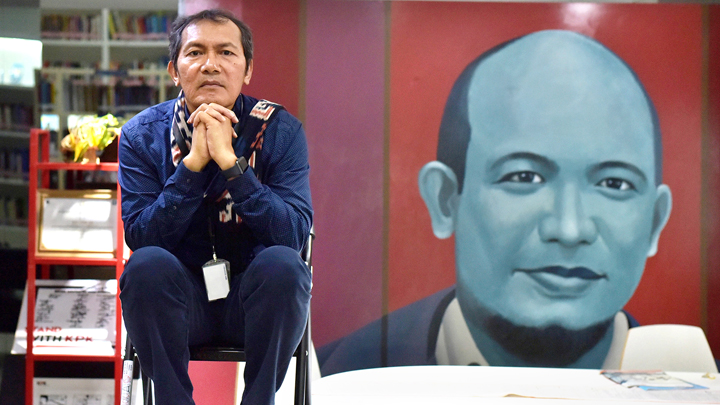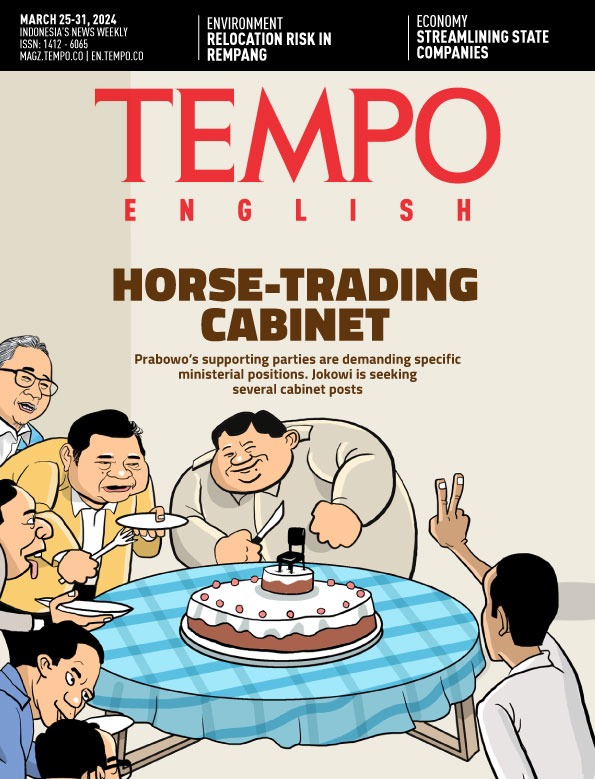Saut Situmorang, Deputy Chair, Corruption Eradication Commission: Find clean and ferocious ‘cats’
Monday, September 2, 2019
arsip tempo : 171348402432.

ANTI-CORRUPTION activists questioned the presence of individuals with unfavorable backgrounds among the candidates, with offences varying from non-compliance with the requirement to declare assets to ethics violation during their service with the KPK.
The selection committee is currently choosing 10 prospective candidates to be proposed to President Joko Widodo. During the protest held in front of the KPK building last Friday, the activists join
...
Subscribe to continue reading.
We craft news with stories.
 For the benefits of subscribing to Digital Tempo, See More
For the benefits of subscribing to Digital Tempo, See More









